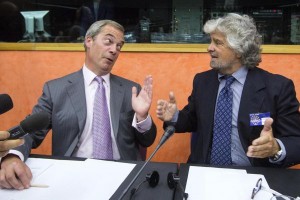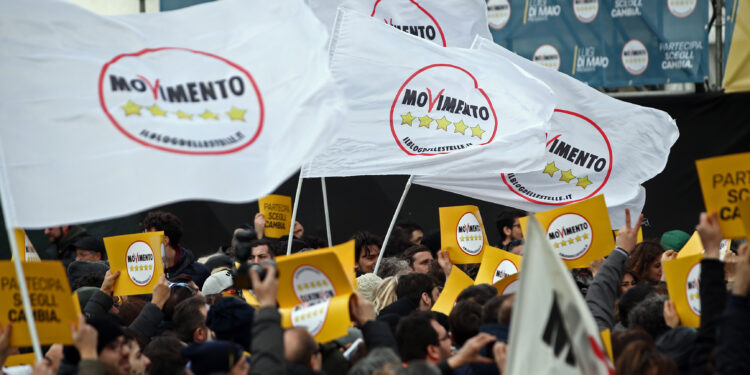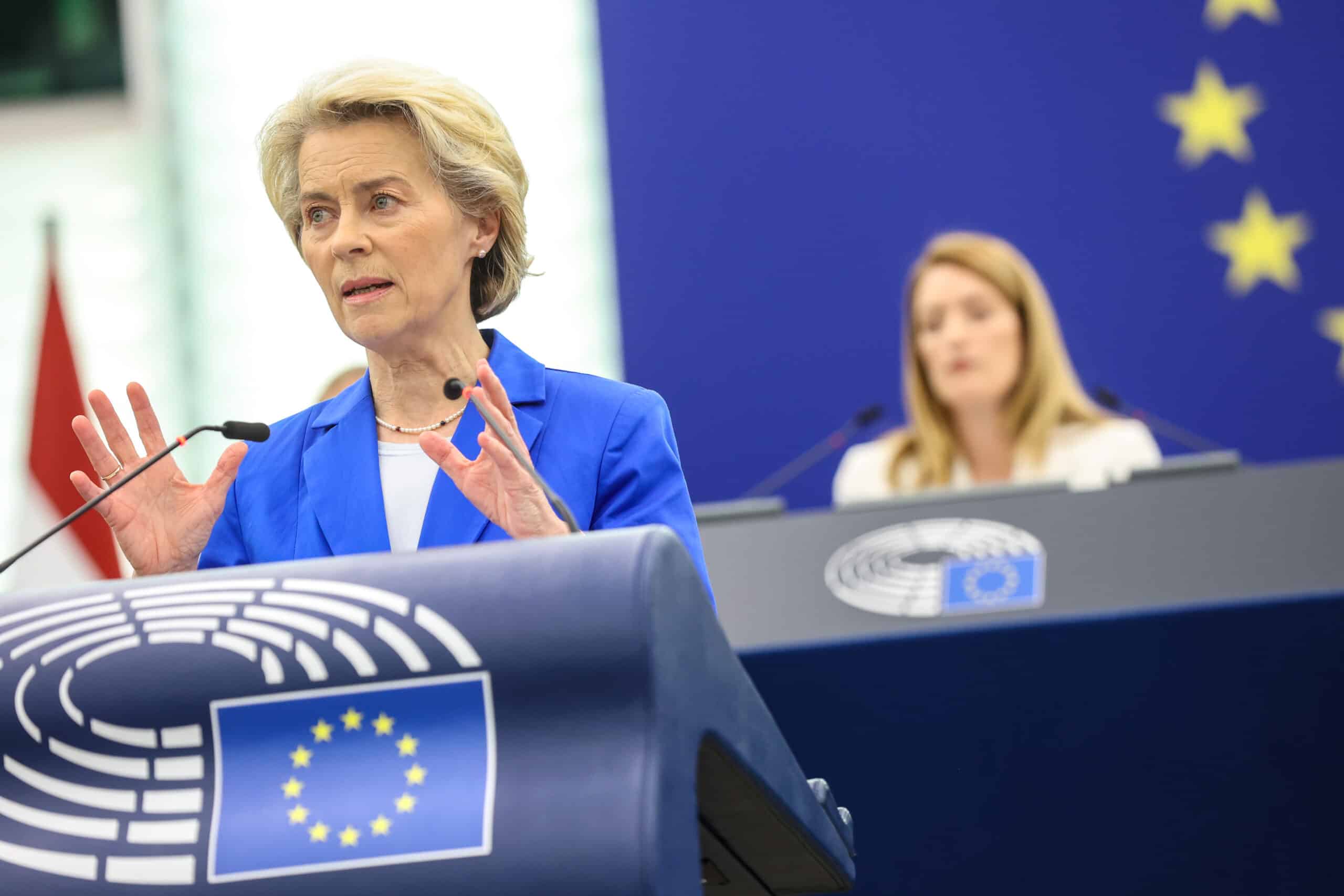Brussels – From Eurosceptic right-wing populism to the European Left. It’s a long way from the 5-Star Movement’s alliance with Nigel Farage’s Brexit Party to joining the Left Group in the European Parliament, the same group joined by two of the six MEPs elected from the ranks of the Green-Left Alliance (Ilaria Salis and Domenico Lucano). This brings to a close a five-year desert crossing of the non-attached group throughout the ninth legislature (2019-2024), which repeatedly saw doors shut in the faces of M5S MEPs and a diaspora of members, from 14 at the beginning of the legislature to the five left at the end.

After the Left group’s decision to postpone for 24 hours its response on the request of the delegation of 8 MEPs of the 5 Star Movement arrived at the constituent meeting yesterday (July 3), the direct discussion between the 5 Star and the group’s cabinet this morning (July 4) yielded a positive outcome. However, the Left and the 5-Star Movement have agreed on “a six-month period with a reciprocal observer status,” which, however, sources inside the delegation confirm does not conflict with being full members of the group. In particular, the 39 original members want concrete reassurances about opposition to the confirmation of Ursula von der Leyen as head of the European Commission when the plenary vote is held on July 18, given the fact that five years ago, the 5 Star Movement’s support was decisive for the birth of the first von der Leyen Commission. “This decision was made in agreement with Sinistra Italiana, and we made sure that the M5S aligned with our political position,” explains the French co-chair of the Left Group, Manon Aubry, in the joint statement: “We represent antifascism, fight for workers’ rights, pursue ambitious climate action, and oppose austerity.”
With the entry of the eight elected into the ranks of the 5 Star Movement (Gaetano Pedullà, Carolina Morace, Dario Tamburrano, Pasquale Tridico, Valentina Palmisano, Mario Furore, Danilo Della Valle, Giuseppe Antoci ) the Left group can now rise to 47 members in the EU Parliament, seven less than the Greens/Ale group (second to last with 54). The Italian component has become the largest (with 10 members) and, due to the group’s internal rule of keeping delegations separate according to individual representative parties, M5S is the largest behind only La France Insoumise (nine). “Over the next five years, we will strive to work with our new colleagues to advocate for a more socially conscious Europe, opposing poverty and austerity policies,” is the comment of the head of the delegation, Pasquale Tridico: “We will actively pursue a diplomatic solution in all war zones, recognizing the urgent need for peace throughout Europe and the world.”

The postponement of the decision to join the Left Group was prompted by the misgivings of some national delegations (such as those from Portugal) about the past of the 5 Star Movement: from the five-year alliance with Farage’s UK Independence Party (later founder of the Brexit Party, now Reform Uk) in the European Parliament in the eighth term of the European Parliament, to the government with Matteo Salvini’s League between 2018 and 2019. But during the hearing that lasted about two hours, the 12 questions addressed to the outgoing and newly elected M5S MEPs also focused on the Ukrainian issue (confirmed solidarity with the Ukrainian people and willingness to work for a negotiated solution between Kyiv and Moscow) and on the leftist deployment in the national and European political arena (evidence would be the contribution to the creation of a coalition of opposition parties to the Meloni government). As party sources point out, reference was made to the appeal signed in favour of the New Popular Front in France, and on the economic-social front also the introduction of basic income during the Conte I government, the intention to introduce the minimum wage in Italy, and opposition to the neo-liberal agenda of the von der Leyen majority.
The 5 Star Movement’s 10 years in Brussels

It was June 2014 when the overwhelming majority of M5S online voters sided to sit within the ranks of the eurosceptic Europe of Democracies and Diversities (EfD) group. Despite the attempted and failed split of the 5-Star Movement two and a half years later to try to join the Alliance of Liberals and Democrats for Europe (Alde) party, the axis with the British eurosceptic and sovereignist UKIP party remained in place until the end of the eighth legislature. After the 2019 European elections, the team of 14 MEPs elected from the ranks of the 5-Star Movement remained without a political group in the EU Parliament, even given the imminent departure from the EU institutions of the 73 British members (including 29 Brexit Party members). This difficulty did not prevent the then 5-Star Fabio Massimo Castaldo (who joined earlier this year Azione and the Renew Europe group without running again in the European elections) from being re-elected as one of the 14 vice presidents of the European Parliament in the first half of the ninth legislature as a non-member of any group.
In the years that followed, it failed to make it into a political group—a crucial issue in obtaining institutional offices and legislative files in the EU institution—neither in that of the Progressive Alliance of Socialists and Democrats (S&D) despite the push by Enrico Letta (then secretary of the PD), nor in that of the Greens/Ale, with the intensified dialogue in early 2023 but then frozen for over a year for the very same issues that were analyzed in more detail today by the Left Group. In the meantime, there has been a haemorrhage of MEPs, passed individually in all other groups except Identity and Democracy (in which the Lega sits): the number of members of the 5 Star Movement delegation has thus dropped from 14 to five members, before the return to voting on June 6–9 for the renewal of the European Parliament, the election of eight MEPs and the closing of a controversial ten-year-long political cycle in Brussels.
English version by the Translation Service of Withub









![Una donna controlla le informazioni sul cibo specificate sulla confezione [foto: archivio]](https://www.eunews.it/wp-content/uploads/2014/12/Etichette-alimentari.jpg)

